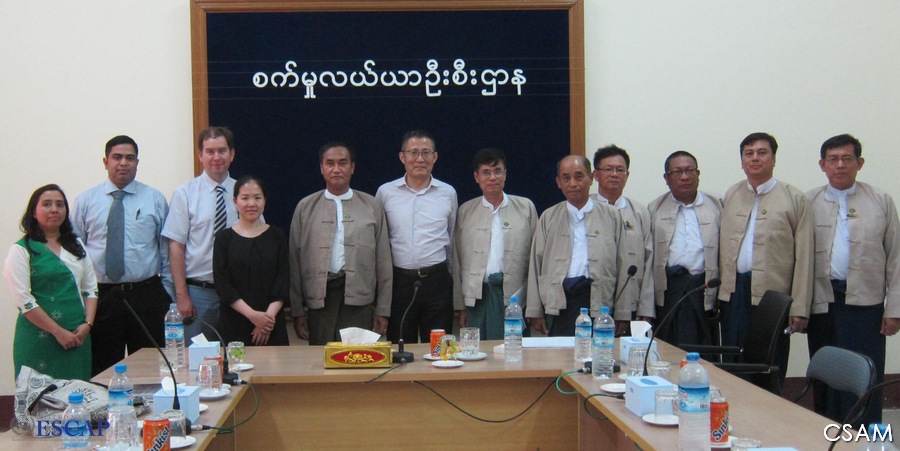CSAM Joins Hands with CAPSA and APCTT in Incepting the LIFT Project for Livelihoods Improvement in the Dry Zone of Myanmar, 5-8 May 2015, Yangon, Myanmar

The three regional institutions of ESCAP, i.e. the Centre for Sustainable Agricultural Mechanization (CSAM), the Centre for Alleviation of Poverty through Sustainable Agriculture (CAPSA) and the Asian and Pacific Centre for Transfer of Technology (APCTT), launched “An Integrated Economic and Social Development Programme for Livelihoods Improvement in the Dry Zone of Myanmar” at the Inception Workshop held on May 5th, 2015 in Yangon, Myanmar. The Workshop was co-organized by the Network Activities Group (NAG), a local NGO, with the support of the Ministry of Livestock, Fisheries and Rural Development of Myanmar (MLFRD) and United Nations Office of Project Services (UNOPS).
The project is funded through the Livelihood and Food Security Trust Fund (LIFT) managed by the United Nations Office of Project Services (UNOPS) and aims to support integrated socioeconomic development in Myanmar's dry zone in the context of inclusive and sustainable development with special emphasis on livelihoods improvement and food security. APCTT, CAPSA and CSAM will work interdependently on three corresponding thematic areas, namely technology transfer of improved and environmentally sound technologies, sustainable agriculture and agricultural engineering and farm mechanization, in developing case studies, designing and implementing trainings, and formulating policy briefings.
The overall objective of the Workshop was to facilitate mutual understanding among stakeholders on the project and other ongoing and planned activities, and to identify opportunities for collaboration. Around 30 participants including representatives of LIFT development partners working in the dry zone of Myanmar, government ministries, international aid agencies, academia, NGOs and local civil society organizations participated in the workshop.
On May 8, 2015, representatives of the three RIs visited the Yezin Agricultural University and the Department of Agricultural Planning (DOP), Agricultural Mechanization Department (AMD) and the Department of Agriculture (DOA) of Ministry of Agriculture and Irrigation of Myanmar (DOA-MOAI) to inquire into facts about the Dry Zone and other relevant national and international development initiatives there and to seek advice and opportunities of collaboration in implementing the project.
The Dry Zone mainly covers the three central regions of Mandalay, Magway and Sagaing in Myanmar, and is characterized by less and uneven distribution of monsoon rains. The challenges and constraints to food security and rural livelihoods in the Dry Zone have been exacerbated in recent years by increasing evidence of climate change.
